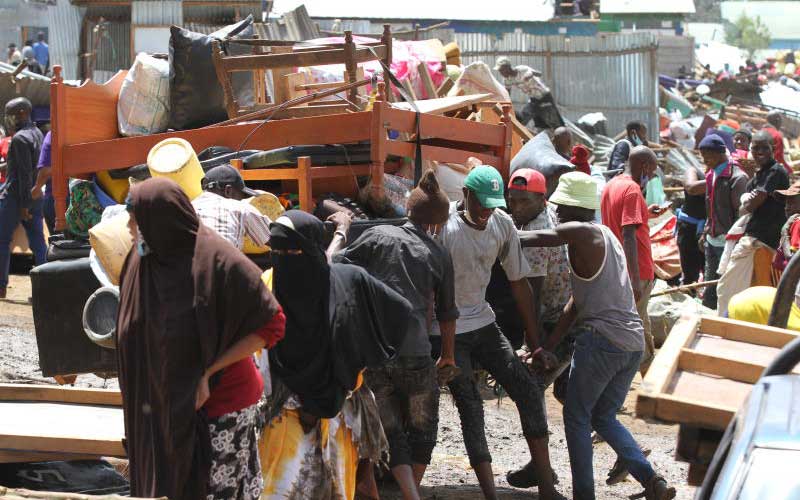×
The Standard e-Paper
Smart Minds Choose Us

Residents of Kajiji, Sewage area of Kariobangi North move out after the government flattened their homes, May 4, 2020. [Elvis Ogina, Standard]
UN officials have asked the government to halt all evictions during the Covid-19 crisis and protect human rights activists who are under threat for defending evictees.